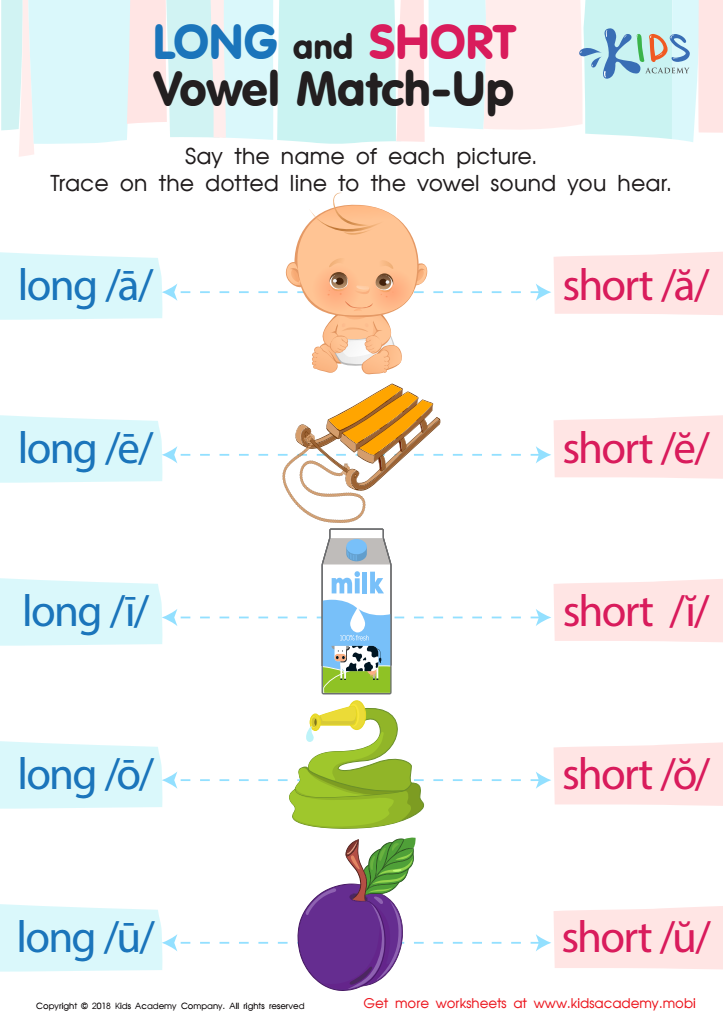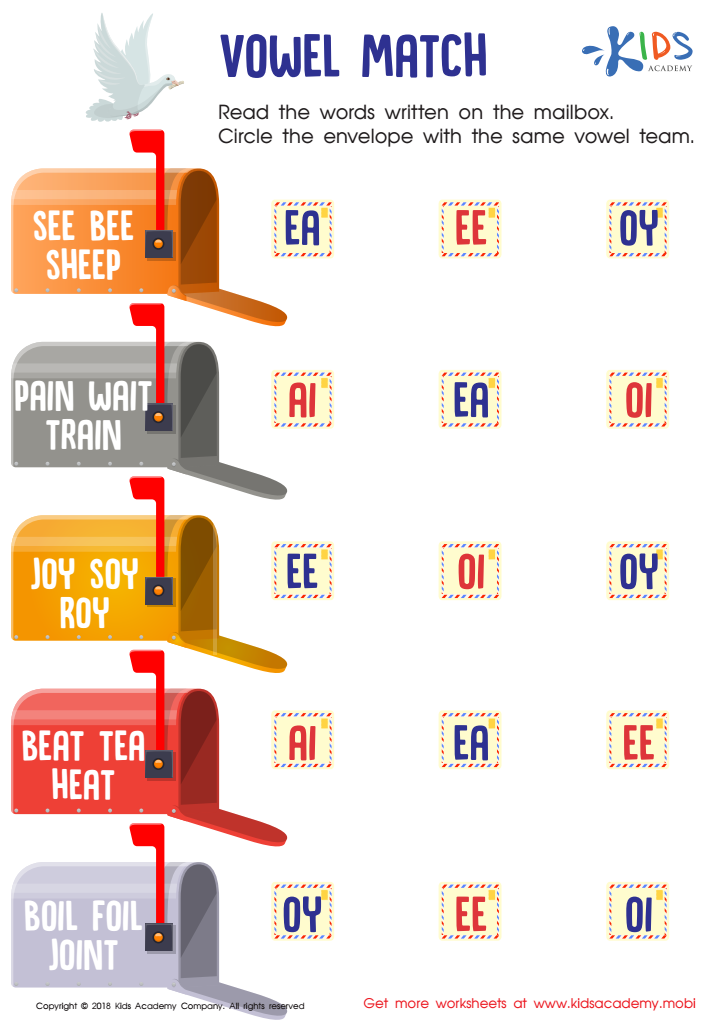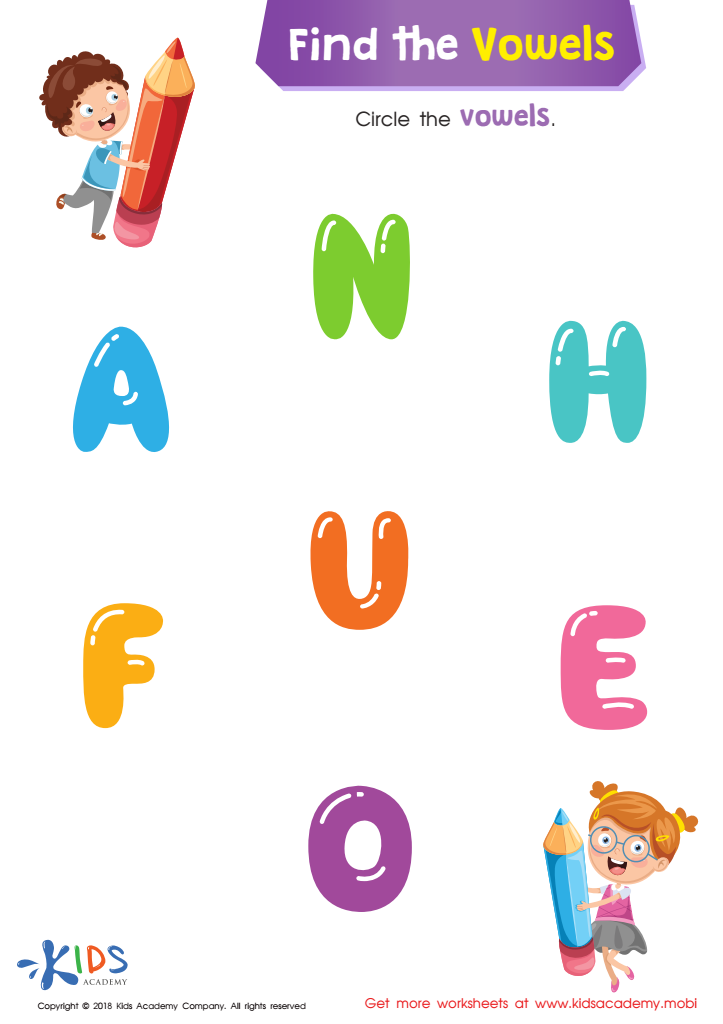Vowel Recognition Vowels and Consonants Worksheets for Ages 6-7
7 filtered results
-
From - To
Discover our engaging Vowel Recognition Worksheets designed specifically for ages 6-7! These interactive resources help young learners identify and differentiate between vowels and consonants, making phonics fun and effective. With vibrant illustrations and captivating activities, children will enhance their reading and writing skills while building a solid foundation in language arts. Perfect for home or classroom use, our worksheets are tailored to support early literacy development in a playful and encouraging manner. Download now to spark your child’s love for learning and boost their confidence in language recognition! Embrace the magic of vowels and consonants with us today!


Long and Short Vowel Match up Reading Worksheet


Let's Check Long Vowels: Assessment Worksheet


Vowel match Worksheet


Short Vowels /e/, /i/, and /u/ Worksheet


Short Vowel Eggs Worksheet


Find the Vowels Reading Worksheet


Long and Short Vowel Sentences: Assessment Worksheet
Vowel recognition is essential for children ages 6-7 as it forms the foundation for their reading and writing skills. At this age, children are typically learning to decode words, and vowels play a crucial role in this process, serving as the building blocks of syllables. Understanding vowels helps children correctly pronounce words, aiding in their literacy development and fostering confident readers.
Moreover, recognizing the difference between vowels and consonants enhances phonemic awareness, a skill linked to successful reading and spelling. This awareness allows children to manipulate sounds, which is vital for learning phonics and ultimately contributing to overall language development. Reading proficiency established in these early years can lead to better academic outcomes as children progress through school.
Parents and teachers should prioritize vowel recognition in their teaching strategies and home activities. Encouraging games, songs, and interactive reading can make learning about vowels enjoyable and engaging. Additionally, fostering this recognition supports a child’s confidence in both classroom and social settings, setting them on a path to future success. By investing time and effort into vowel recognition, parents and educators nurture children's foundational literacy skills, ensuring they are equipped for more complex learning ahead.
 Assign to My Students
Assign to My Students










